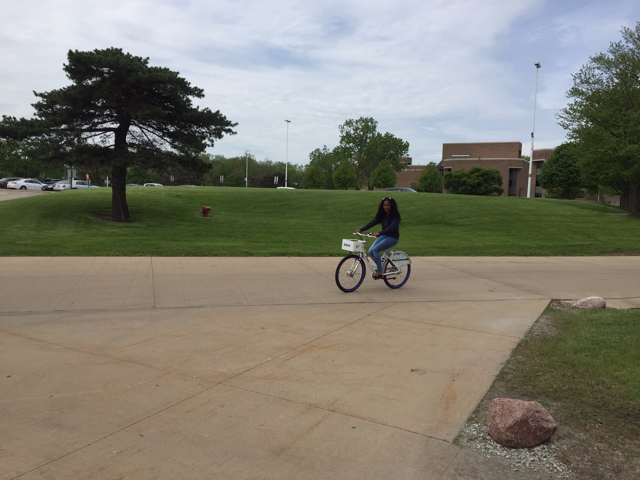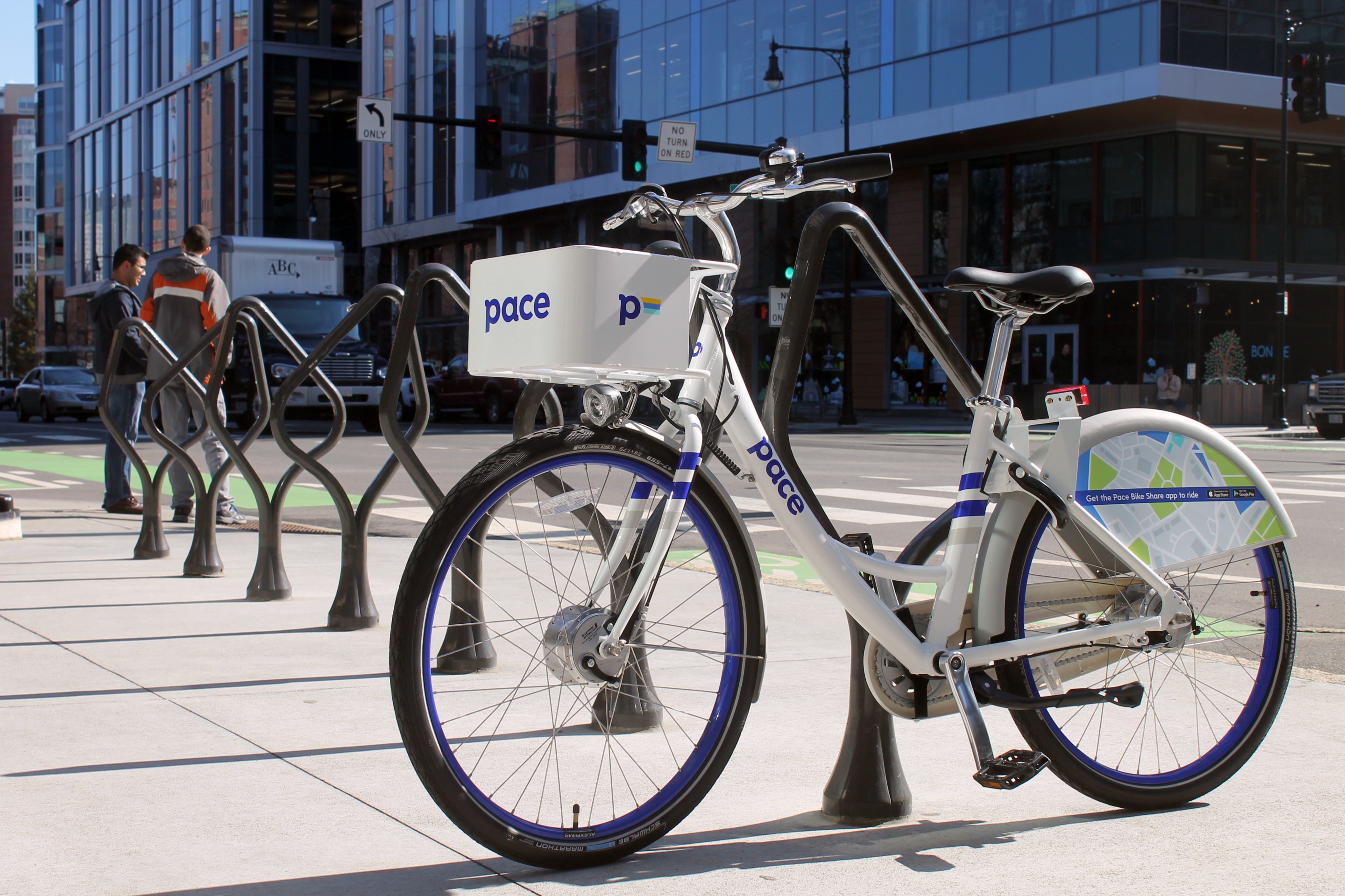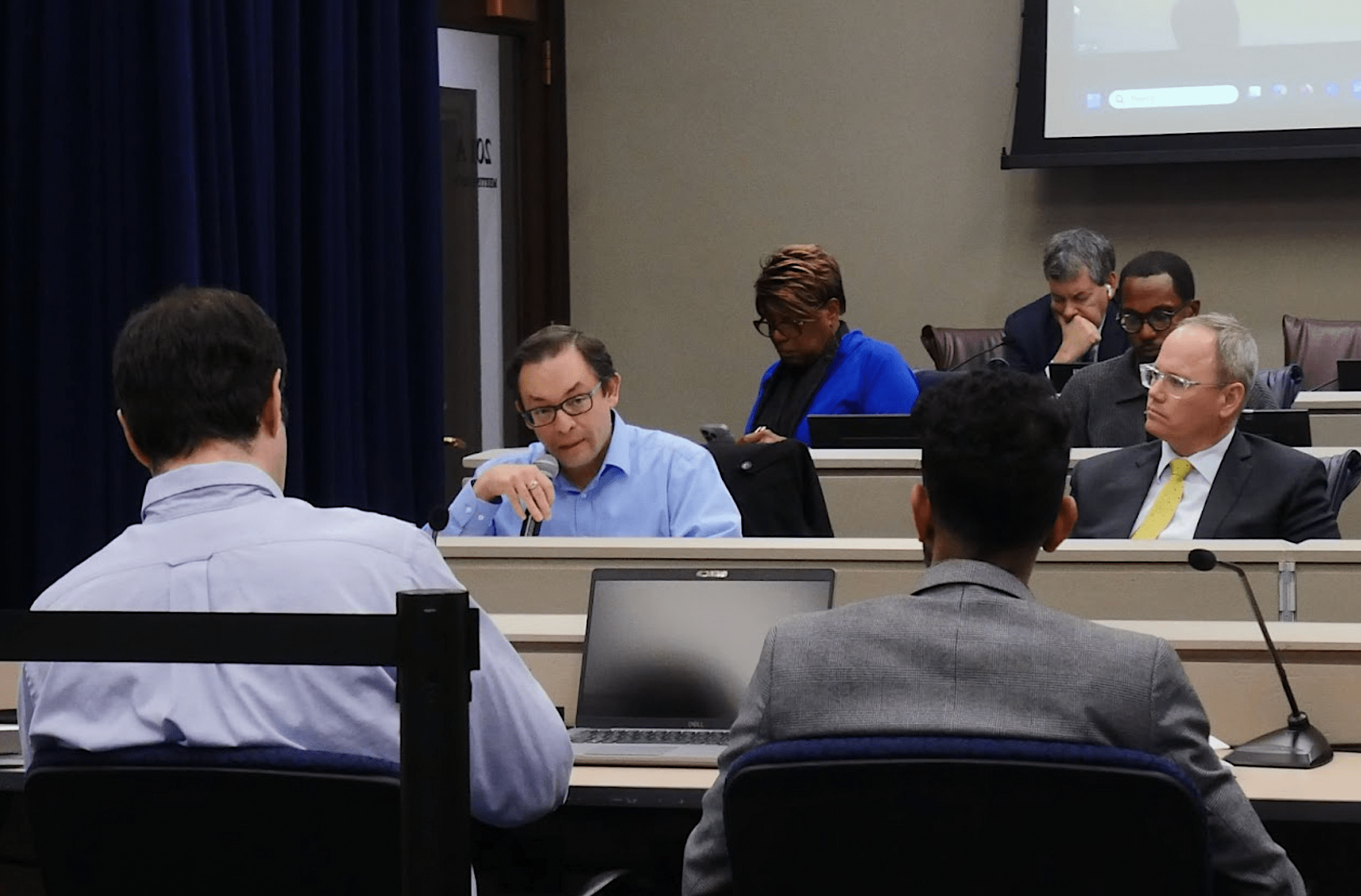Late last month I checked in with Ofo, one of Chicago’s three dockless bike-share providers, to see how the DoBi pilot on the Far South Side is going from their perspective. Last week I did the same with Pace, operated by Zagster, the only one of the companies to deploy “lock-to” cycles with built-in cable locks. (I should be in touch with LimeBike soon.)
When I caught up with Dave Reed, Pace’s Chicago manager, it was just after he’d had a busy day meeting with reps from 10th Ward alderman Susan Sadlowski Garza and 19th Ward alderman Matthew O’Shea, as well as staff from the Beverly and Mount Greenwood business associations. One topic of discussion was Pace’s plan to work with local merchants and organizations to install bike racks on private property, and the company also hopes to work with the city to put in their own racks on the public right of way.
The Chicago Department of Transportation recently announced plans to install city-owned 100 racks in the dockless pilot zone, which includes almost all of the city south of 79th, using DoBi permitting revenue. “100 racks is great but more are needed,” Reed said, adding that CDOT has already given its blessing to Pace’s plan to install their own ring-shaped racks on private property.
Parking availability could become more important after July 1 – only three weeks from now – when all companies will be required to used lock-to bikes, rather than the wheel-lock-only cycles currently deployed by Ofo and LimeBike. Reed said CDOT has indicated that, contrary to the wishes of Pace’s competitors, they intend to keep the lock-to policy, which has the goal of deterring theft, vandalism, and sidewalk blockages. He added that people using other dockless brands, as well as their own bikes, would be welcome to lock up at Pace’s racks.
Reed also recently met with 21st Ward alderman Howard Brookins, who made national headlines after he was seriously injured while he was biking on the Calumet Trail when a “kamikaze squirrel” leapt into his spokes. “Alderman Brookins wants to work with us on group rides, short trips, and health and wellness opportunities,” Reed said. “We’ll be doing a lot of grassroots marketing and engagement, which is required by the city’s permitting requirements.”

Pace is also looking to partner with local bike shops to offer rentals of adaptive cycles like adult tricycles, side-by-side bikes, and hand cycles. Reed recently had a meeting with the Mayor’s Office for People With Disabilities to discuss this strategy, which they’ve done in other cities.
In addition, Pace is working on rental options for unbanked Chicagoans and people who don’t own smartphones. People who qualify for the Electronic Benefits Transfer Program, will be eligible for a $5 a month membership that allows for an unlimited number of 60-minute trips. The Divvy for Everyone program offers one-time $5 annual memberships to low-income residents, subsidized by grant and sponsorship money.
Dave Reed also recently met with Oboi Reed (no relation) from the transportation justice group Equiticity to discussing Pace providing 25 bikes for a low-tech neighborhood “bike library, similar to what Equiticity is establishing on the Far South Side and in North Lawndale with bikes from Ofo and Jump Mobility, respectively. The third bike library location hasn’t been determined yet.
“The bottom line is that we’re really focused on growing ridership and building a system from the ground up that people are going to embrace,” Dave Reed said.





